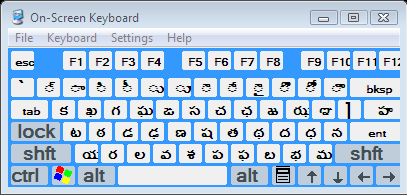

*A popup gain adjustment slider that allows you to quickly adjust amplitude by selection. *The ability to set markers while recording using Ctrl (Cmd) -K. *A loop toggle icon that leaves it on or off all the time. *Effects can be previewed in real time as the entire track plays, not just 5 or 10 seconds. *The effects are much better than Audacity's, especially Noise Reduction. *The wave form defaults to fill the screen.
#Ocenaudio help 64 Bit#
*It comes in 32 and 64 bit versions for Windows, Mac, and Linux. *Not much configuration to do but select your input and set the sample rate. It's made to record and edit a single track without all the music related fluff that gets in the way. *It is an editor, not a production suite. *As the web site says, it's an "Easy, fast and powerful audio editor" Without going into too much detail, Here's a quick list of the pros and cons I've come up with so far. In my opinion, it does a much better job than Audacity. I've spent the last day playing with Ocenaudio (pronounced Oh-sen-audio). That's why Audacity has always been a favorite it doesn't have all that excess baggage. They usually take a considerable amount of tweaking just to get to the point where you can record and edit a single track. They default to a bunch of tracks, MIDI, effects sends, busses, and assorted other functions that narrators don't need and don't understand. Most DAWs are made for multi-track music production, not narration. If you want to do a lot of recording for Librivox and/or produce commercial recordings, you might want to look at Studio One. Now that it does, if you only record for Librivox and that only on an occasional basis, there is probably no need to switch from Audacity. When I started with Studio One, Audacity did not have punch and roll. I did pay him to get S1 set up on my computer (basically hiding all the music stuff and streamlining the interface to what I need as well as dialing in some of the settings). Studio One is really a musician's DAW BUT Don Baarns (Red Baarns audio on Youtube and an active Facebook group) has developed many macros/tools/processes to make Studio One work very well for audiobook production.
#Ocenaudio help free#
There is a free version as well that has good punch and roll so you can test it out and then decide if you want the extra features of Artist. I bought it for maybe $60 but that was several versions ago. I tried Audacity, Ocenaudio, Read to Record, and settled on Studio One. Yeah, yeah, you can disable all the extra toolbars you're not using in Audacity but I like things that are pretty out-the-box.I think every person gets rather attached to the DAW they are most familiar with. Personally I think the user-interface is waaay nicer than Audacity. What are the pros and cons of using it? How does it compare to Audacity? I'd be happy to link to your site, embed any recordings you've done with it, etc. I'd love to hear from any of you who have actually used it (or are currently using it).

Stuff like noise reduction and, of course, other stuff none of us would ever use. But it still has support for a lot of the effects and plugins that Audacity supports.

There's no support for multiple tracks which means it's a bit easier to use than say Audacity or Ardour (or GarageBand, etc). During my research, I stumbled across something called " ocenaudio".
#Ocenaudio help software#
I'm writing an article for my blog on all the free software downloads available for voice actors.


 0 kommentar(er)
0 kommentar(er)
